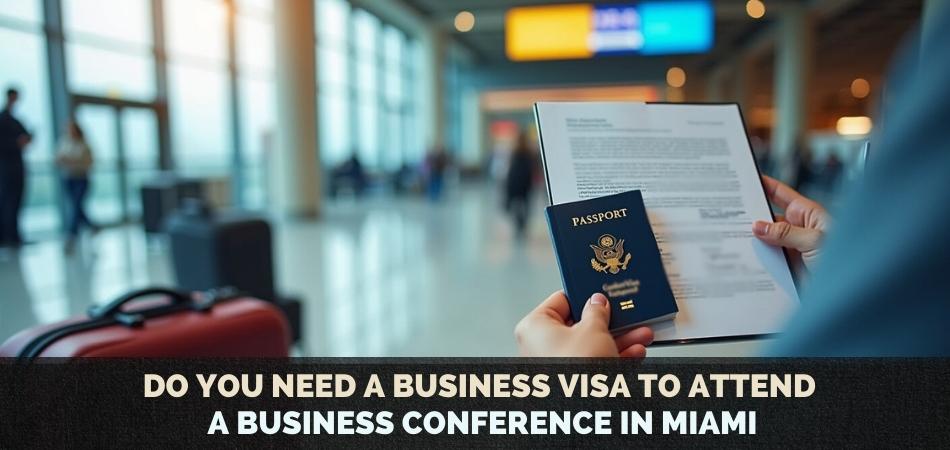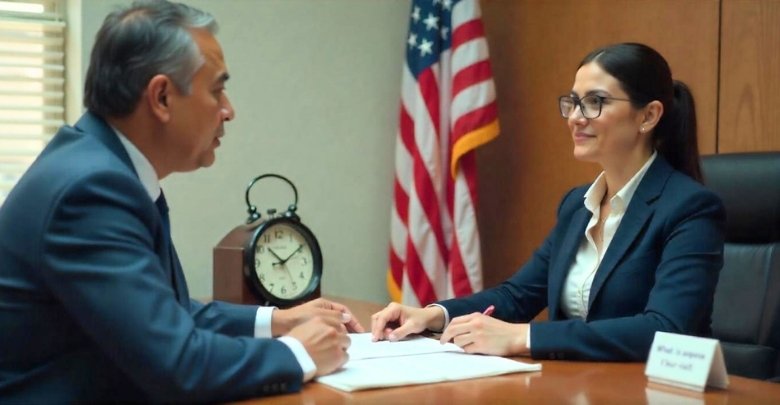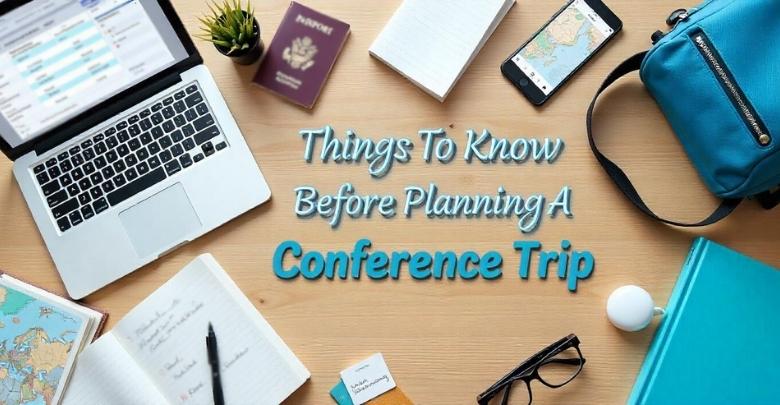Professionals from all over the world can enjoy the benefits of networking, learning, and career growth opportunities that come with attending a business conference in Miami. But before you pack your bags, one key question arises, do you need a business visa to attend a business conference in Miami?
Yes, you need a business visa to attend a business conference in Miami if you’re not from a Visa Waiver Program country. Most travelers will need a B-1 Business Visitor Visa, which permits temporary entry for business-related activities like meetings, conferences, or training sessions in the U.S.
To ensure smooth entry, it’s important to verify your country’s eligibility and review the specific requirements of your conference. Read on to explore the full process and helpful tips for a successful trip.
Do You Need a Business Visa to Attend a Business Conference in Miami? Simple Steps Explained
Yes, you do need a business visa if you’re not from a country that is part of the U.S. Visa Waiver Program. The visa you need is called the B-1 Business Visitor Visa. It lets you visit the U.S. for short business events like conferences or meetings. Below are the steps and details you should know. Keep reading to make sure you’re fully prepared.

Step 1: Determine Your Visa Type
The most common visa for attending conferences in Miami is the B-1 Business Visitor Visa. This visa is for short-term business activities, including attending meetings and conferences. Review the specific details of your trip to ensure you apply for the correct visa. For conferences, the B-1 visa is typically sufficient.
Step 2: Check Your Country’s Eligibility
If your country is part of the U.S. Visa Waiver Program, you might not need a visa. However, if you’re not eligible, you must apply for a B-1 visa. You can find a list of Visa Waiver Program countries on the U.S. State Department website. Make sure to confirm your country’s status before starting the visa process.
Step 3: Complete the DS-160 Form
The DS-160 form is the first step in the visa application process. You will need to provide personal information, travel details, and passport data. This form is available online, and it must be filled out carefully. After completing the form, you will receive a confirmation page to bring to your visa interview.
Step 4: Pay the Visa Application Fee
There is a non-refundable visa application fee that you must pay when applying for a B-1 visa. The fee varies by country, so be sure to check the current rate. Payment can usually be made online or at designated payment centers. Keep the payment receipt, as you’ll need it for your interview.
Step 5: Schedule Your Visa Interview
After paying the visa fee, schedule your interview with the nearest U.S. embassy or consulate. Be prepared for wait times, which can vary depending on your location. Check the embassy’s website for available interview slots. It’s advisable to book your interview early to avoid last-minute delays.
Step 6: Prepare Required Documents
Gather all the documents you need before your visa interview. These may include your passport, DS-160 confirmation, visa fee receipt, and conference invitation. Proof of ties to your home country (like a job or family) may also be requested. Double-check the embassy’s website for any additional document requirements.
Step 7: Attend the Visa Interview
During the interview, a consular officer will ask you questions about your trip. Be honest and clear about the purpose of your visit. Make sure to provide the requested documents and demonstrate your intent to return home after the conference. If approved, you’ll receive your visa, allowing you to attend the business conference.
Types of Visas That Can Also Be Useful for Attending a Business Conference in Miami
If you’re planning to go to a business conference in Miami, there are a few visa types that might be helpful. It’s not just one kind of visa for everyone. The right one depends on why you’re going and how long you’ll stay. Let’s look at a few common visa types that could be useful for this purpose. Read till the end to see which one fits your situation best.
ESTA (Visa Waiver)
ESTA is for people from countries that don’t need a full visa to visit the U.S. It’s super simple—you fill out a form online and usually get approval fast. With ESTA, you can attend meetings, conferences, or short business events. It’s great for trips under 90 days. Just make sure your country is on the approved list before applying.
B-2 Tourist Visa
Even though this is a tourist visa, you can still use it to go to a business conference. Many travelers consider attending a conference in Miami with a tourist visa if they’re only participating and not doing paid work. People also pick this one when they want to mix business with some fun travel. For example, going to a conference and then exploring Miami. It’s a good option if your visit is mostly personal but includes a business event.
H-1B Visa
This is a work visa meant for people who already have a job offer in the U.S. You can’t use it just to attend one event, but it works if you’re already working there. Some employees use this visa to go to training or conferences as part of their job. It’s more long-term and needs an employer to sponsor you. Not everyone will qualify, but it’s useful if you’re already in the U.S. for work.
J-1 Exchange Visa
The J-1 visa is for people who are part of exchange or training programs in the U.S. Sometimes, those programs include business events or conferences. If you’re coming through a school, company, or group exchange, this might be the right one. You’ll need a sponsor organization to back your application. It’s more for learning and sharing knowledge than just attending an event.
L-1 Visa
The L-1 visa is for employees of a company that has offices in both the U.S. and another country. It allows workers to transfer to the U.S. office for meetings or training. If you’re coming for a business conference as part of your company’s U.S. operations, this visa could help. It’s not for quick visits, but good for longer stays. Your company must help with the paperwork.
Differences Between B-1 and B-2 Visa Purposes
When planning a visit to the U.S., it is important to understand the differences between B-1 and B-2 visas. Each one is used for a different reason. Here’s a simple table to help you understand the main differences.
| Point | B-1 Visa (Business) | B-2 Visa (Tourism) |
| Main Purpose | For business trips | For tourism and personal visits |
| Allowed Activities | Meetings, conferences, training | Vacations, family visits, medical treatment |
| Work Permission | No paid work allowed | No paid work allowed |
| Stay Duration | Usually up to 6 months | Usually up to 6 months |
| Typical Users | Business people, company staff | Tourists, people visiting family |
| Documents Needed | Business invitation, meeting schedule | Travel plans, hotel bookings |
| Event Attendance | Allowed for business events only | Allowed if not working or paid |
| Visa Type | Non-immigrant business visitor | Non-immigrant tourist visitor |
| Extension Option | Can apply to extend stay | Can apply to extend stay |
| Mixing Travel Purpose | Mostly business, little or no leisure | Mostly leisure, conference visits allowed |
Can You Extend Your Business Visa After Attending a Miami Conference?
Yes, you can extend your business visa after attending a conference in Miami, but there are conditions to consider. The B-1 visa typically allows you to stay for up to six months. If you wish to stay longer, you need to apply for an extension before your visa expires. However, the U.S. government does not automatically approve extensions, so it’s important to justify the need.
To extend your stay, you must prove that your visit is still for business purposes. You will also need to show that you have enough financial support to cover your extended stay. The application process includes filling out forms, paying fees, and attending an interview. If you cannot prove your case, your extension may be denied.
It’s important to apply early for the extension, as the process can take time. The U.S. Citizenship and Immigration Services (USCIS) requires you to submit documents that show your need for extra time. If granted, you will be able to stay for a longer period, but if denied, you may need to leave. Always check the latest rules and apply on time to avoid issues with your visa.
Business Visa Denied: What to Do in This Situation?
Denial of a business visa can be upsetting and confusing, especially when you’ve planned to travel. There’s no need to feel bad. Sometimes small things in your application can cause issues. Fortunately, there are ways to understand what happened and how to proceed. Keep reading to learn what actions you can take after a visa denial.
Find out the Reason
The first thing to do is find out why your visa was denied. The U.S. Embassy usually gives a reason in a letter or paper. It might be because of missing documents, unclear answers, or doubts about your return. Being aware of the reason helps you avoid the same problem next time.
Stay Calm and Positive
A visa denial doesn’t mean you’ll never get a visa again. Many people get approved after fixing their mistakes. Take a break, clear your mind, and don’t panic. It’s okay to feel upset, but try to focus on what you can do next. Being calm helps you make better choices going forward.
Check Your Documents
Go back and look at everything you submitted with your visa application. Make sure your documents are correct, complete, and easy to understand. Missing or confusing information is a common reason for denial. If needed, ask someone you trust to review your papers with you. A second look can make a big difference.
Fix the Issues
Once you know what went wrong, try to fix those problems. If documents were missing, get them ready for next time. If your answers were unclear, practice what you’ll say during the interview. Be honest and clear, and show strong reasons for your visit. Fixing small mistakes can help you get approved later.
Reapply When Ready
You can apply for a business visa again after being denied. There’s no limit on how many times you can try. But make sure you’ve fixed the issues before applying again. Going back with the same mistakes won’t help. Apply only when you feel fully prepared.
Things To Know Before Planning A Conference Trip To Miami
Planning a trip to Miami for a conference can be exciting, but there are a few important things to think about first. You want your trip to go smoothly, without any problems or confusion. A little planning now can save you from stress later. Keep reading to find out what to keep in mind before you go.
Check Visa Requirements
Before you book anything, make sure you know if you need a visa to enter the U.S. People from some countries can travel without a visa, but others need to apply. If you need a visa, start the process early so you don’t run out of time. You’ll usually need documents like your passport, conference invite, and travel plans.
Book Flights Early
Flights to Miami can get full fast, especially during big events. Booking early helps you find better prices and better flight times. Look for flights that give you enough time to rest before the conference starts. Don’t forget to check luggage rules so you know what to pack.
Choose the Right Hotel
Staying close to the conference location makes things easier. You won’t need to spend time or money traveling too far each day. These nearby hotels can also help lower expenses for business conference attendees in Miami by offering free breakfast, Wi-Fi, or shuttle services. Look for places that give you value and comfort. Always read reviews before booking, just to be safe.
Plan Your Schedule
Make sure you know when and where each part of the conference will happen. It helps to write everything down or use a phone app. Leave some free time in case something runs late or you want to explore. Planning ahead keeps you from feeling rushed or lost.
Pack Smart
Don’t forget to pack clothes that are right for the event and the weather in Miami. Conferences often have dress codes, so double-check that. Bring a charger, notebook, and anything else you’ll need for the day. Packing smart means you’ll feel ready and comfortable the whole time.
FAQs
This FAQ section covers some smaller details related to business visas and conference travel to Miami. Below, you’ll find clear answers to common questions that people often ask while planning their trip. These cover things you might not have thought about yet but are important to know.
Can I Bring a Family Member on a Business Visa?
You can’t bring family members on a B-1 visa, as it’s for business visitors only. If they want to join you, they must apply separately, usually for a B-2 tourist visa. Each person needs their own application and documents. They cannot attend business events under your visa.
How Early Should I Apply for a Visa?
It’s best to apply at least 2–3 months before your planned trip. Processing times can vary depending on your country. Applying early helps avoid delays and gives you time to fix any issues. Never wait until the last minute.
Can I Use a Travel Agent to Help Apply?
Yes, many people use travel agents or visa consultants for help. They can guide you through the paperwork and interview prep. However, make sure they are trustworthy and know the U.S. visa process well. You’re still responsible for all answers given.
How Long Does It Take to Get the Visa After the Interview?
It usually takes a few days to a couple of weeks after your interview. Time can vary depending on where you applied. Some applications may take longer if more checks are needed. You’ll get your passport back with the visa once approved.
What If I Miss My Interview Date?
If you miss your visa interview, you’ll need to reschedule it through the embassy or consulate website. Missing it without notice may delay your application. Try to cancel or reschedule as early as possible. You won’t lose your fee if done correctly.
Will I Need to Show Proof of Money?
Yes, you may be asked to show proof that you can afford your trip. Bank statements or a sponsor letter can help. It’s important to show you won’t become a burden during your stay. Bring financial documents just in case.
Final Thoughts
A trip to Miami for a business conference requires more than just booking a flight and hotel. Knowing visa rules is crucial, especially if you’re not from a country that participates in the Visa Waiver Program. This brings up the key question: Do You Need a Business Visa to Attend a Business Conference in Miami?
Yes, you do. Most travelers will need a B-1 Business Visitor Visa. Knowing the right visa type, completing forms like the DS-160, and preparing documents early can make the process smoother. If denied, don’t panic—understand the reason and try again with better preparation. Being informed helps avoid stress and delays. With the right steps, you’ll be ready for a successful conference trip.







